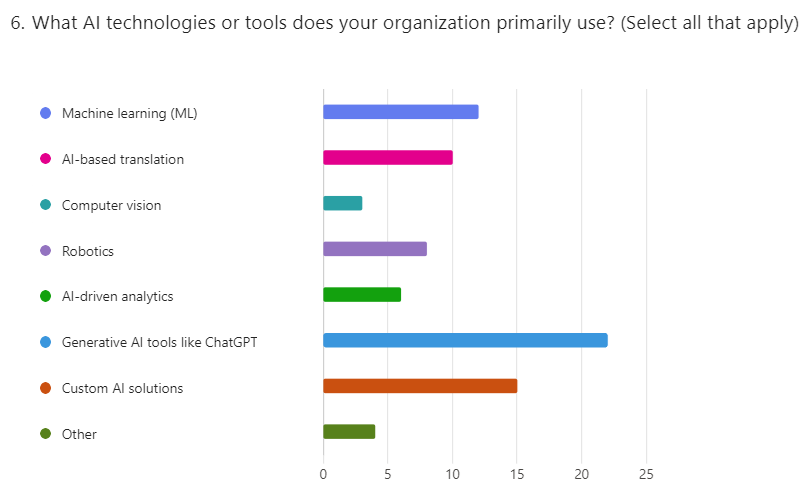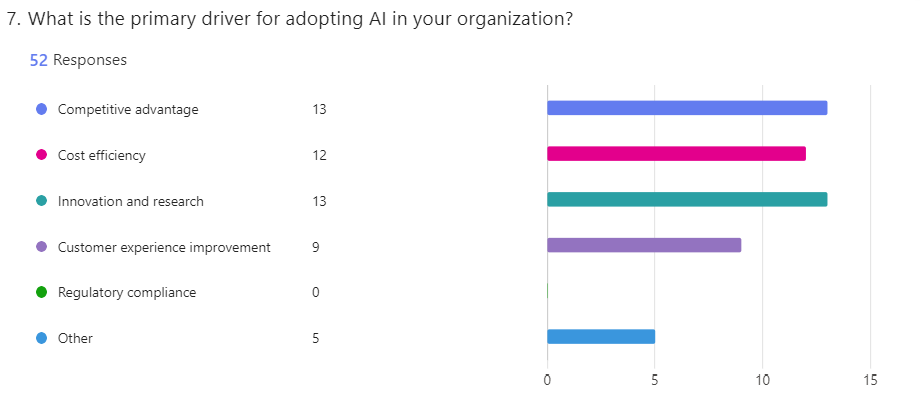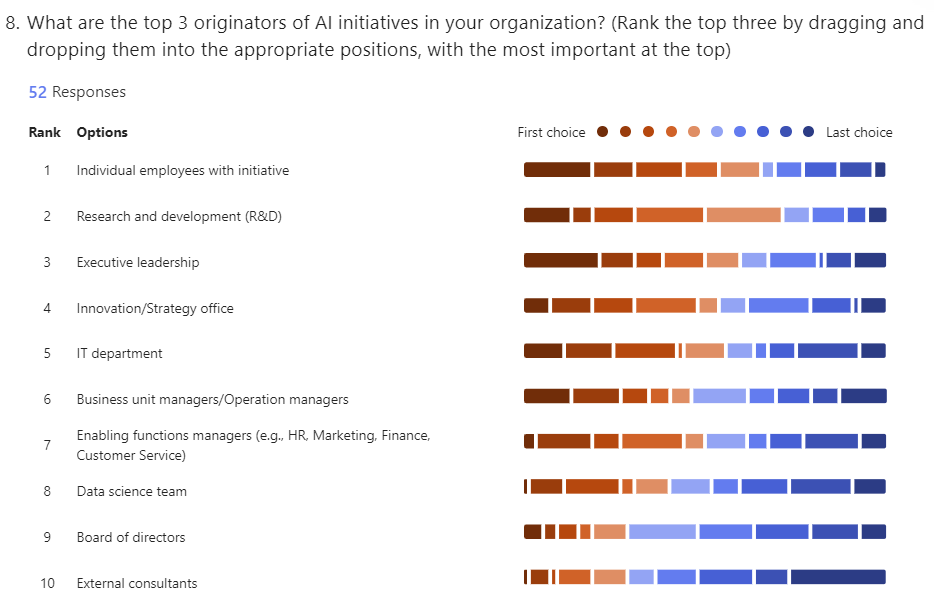AI Adoption Survey - August/September 2024
The survey involved 107 organisations across various industries from different regions. The research combined both quantitative methods—a detailed survey—and qualitative elements through follow-up individual interviews with 20 of the respondents. The study reveals that there’s a notable lag in official implementation compared to the personal engagement of employees with AI tools.
Employees leading the charge
One of the most striking findings is that 87 per cent of employees in organisations without official AI adoption are personally using AI tools, such as generative AI platforms like ChatGPT.
The study also reveals that there are multiple originators of AI initiatives: executive leadership, research and development teams and individual employees.
The confidence correlation
The survey also highlights a clear correlation between AI adoption at the organisational level and employees’ confidence in understanding AI technologies. In organisations where AI is integrated into operations, 71 per cent of employees feel confident in their understanding of AI. In contrast, only 47 per cent feel the same in organisations without AI adoption.
Exploiting the opportunity
To bridge the AI adoption gap, organisations should consider several strategies: leveraging employee enthusiasm, investment in training and development and promoting a culture of innovation, alongside clear policies/guidelines.
Looking ahead
AI’s dynamic progress means that what we know today may evolve by tomorrow morning. Organisations that create a foundational mindset and embrace continuous learning will be better positioned to capitalise on AI advancements and extract ROI from the projects.
More details: https://emerging-europe.com/opinion/employees-not-organisations-are-driving-the-adoption-of-ai/

A Quantified Framework for Location Selection for Global Business Services Centers. Case Study Cluj-Napoca is the product of my PhD research, where I took a deep dive into what makes a city an attractive location for global business services.
With a mix of literature review, targeted industry surveys, and plenty of hands-on experience, I’ve put together a practical framework that I hope will be useful for businesses and local governments alike.Real global cities have understood the necessity of attracting new business to stay competitive, and this research aims to help both local governments and companies make smarter decisions in this area.
And yes, I couldn’t ignore the curveball that COVID-19 threw at us, so I’ve included some thoughts on how this framework can adapt to our VUCA world. Hopefully, it’s as handy in practice as it was in theory!
- Bogdan Surdea-Blaga
Should you wish to get a copy of the book, print or digital, let me know at hello@vucamix.com or book a meeting.





